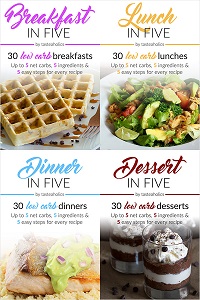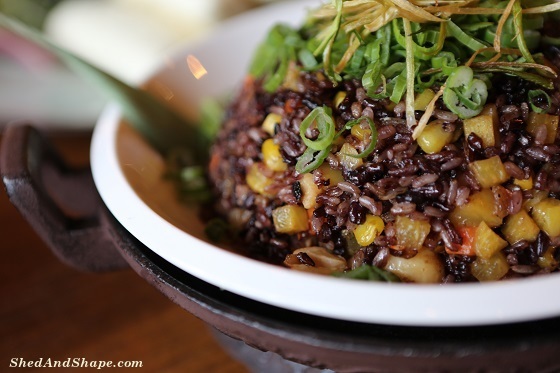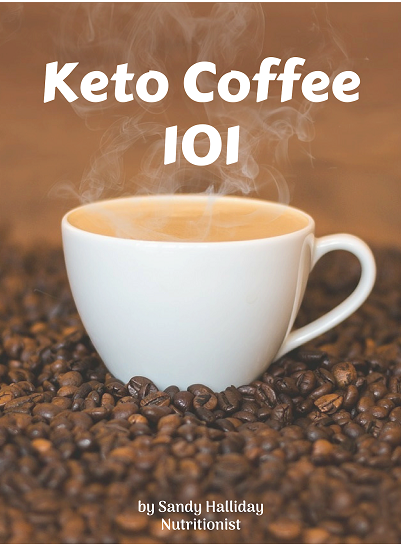You’ve no doubt heard about the health and weight loss benefits of the low carb diet as it’s constantly in the news but have you heard of slow carbs?
Carbohydrates make up a big portion of a standard diet. However, we all know by now that too many starchy carbs will not only make us gain weight but will also make us susceptible to a number of illnesses.
A high carb diet, especially one full of refined carbs, is being blamed for the current obesity crisis, Type 2 diabetes, heart disease, and more. This is why following a low carb diet like the keto diet is proving to be a good way to lose weight while staying healthy at the same time.
Not all carbs are created equal. There are good and bad ones. In fact, the so-called “slow carbs” can help you to lose weight by making sure you’ll get a long-lasting satisfaction from the foods that you eat. But is slow carbs better than low carbs when it comes to losing weight? Let’s find out.
Understanding Slow Carbs
You probably know what a low carb diet is. Just like the keto diet, a low-carb diet restricts the consumption of carbs.
Slow carbs, on the other hand, consist of high-quality carbohydrates, such as barley, quinoa, beans, legumes, high fiber cereals, cooked potatoes, and more. These are the types of carbs that your body can digest slowly providing you with long-lasting energy. They can make you feel full longer, prevent overeating, and allow for better weight control.
Dr. Mark Hyman, an American Functional Medicine physician, and bestselling author has this to say about slow carbs:
“Slow carbs are low-glycemic and don’t spike your blood sugar or insulin. These slow carbs come loaded with nutrients, fiber, and amazing molecules called phytochemicals.”
The Glycemic Index or GI measures the rate in which our body digests carbohydrates. High GI foods are foods that get digested quickly, such as white bread and white rice.
However, low GI foods, such as the slow carbs, are digested slowly and can keep us feeling full longer and help prevent food cravings. These foods have also been found to manage your insulin level, which can minimize the risk of developing diabetes in the future.
Low Carb Versus Slow Carb
For low-carb diets like keto, the amount of carbs that you eat is often the main emphasis. Different low carb diets would recommend restricting carbohydrates consumption to 20 to 100 grams per day. In keto, dieters are encouraged to replace carbs with healthy fats.
While the type of carbs is not always a priority on low carb diets, this is usually what a slow carb diet is about. If you’re going to follow the slow carb diet, you must focus only on eating low glycemic foods or foods that get digested and absorbed by the body at a slower pace.
The slow carb diet requires replacing refined and processed carbs with low GI foods, such as sweet potatoes, other starchy vegetables, fruits, whole grains, whole grain pasta, and legumes.
Is Slow Carb Diet Better than the Low Carb Diet?
As you see, low carb and slow carb diets have totally different approaches. However, both diets are guaranteed to improve your health while helping you to lose weight at the same time.
Some people might find low carb diets to be more suitable for them while others may find it difficult to follow for the long-term. The slow carb diet may be a better option for them.
The key is in choosing the type of diet that you believe can work best for you. If you find it easier to restrict your carb consumption, then go for a low carb diet like keto. However, if you don’t want to deprive yourself of carbs, then opt for the slow carb diet by eating low GI carbs.
Remember that the overall success of any diet depends on how well you can stick to it. So choose the kind of diet that you believe you can follow for the long-term.
 Want some low carb recipes? Get the Keto in Five bundle and start your weight loss journey today! You get 120 low carb recipes – 30 breakfasts, 30 lunches, 30 dinners & 30 desserts! 5 is the limit of ingredients and grams of net carbs per serving for EVERY recipe!
Want some low carb recipes? Get the Keto in Five bundle and start your weight loss journey today! You get 120 low carb recipes – 30 breakfasts, 30 lunches, 30 dinners & 30 desserts! 5 is the limit of ingredients and grams of net carbs per serving for EVERY recipe!
Click here to get the ebooks.










